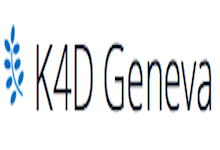Dialogue on the way forward: World café
6 Apr 2017 02:00h
Event report
Session 7 of the Knowledge for Development conference consisted of an exercise called ‘World Café’, which was a discussion based exercise that focused on the different ways in which different people with diverse knowledge backgrounds can interpret a question, showing why it is important for knowledge to be shared globally. For this exercise, the room was split up into ten small countries, each with a host guiding the conversation at that country’s table. They were given three rounds of questions, the idea being that each diverse group of participants act as though they are sitting in a café somewhere around the world, and they are to discuss and brainstorm on the question posed. In each round, the participants move to different countries to add their input on each conversation. These are the main ideas that were discussed during each round:
Round 1: What are concrete ways of recognising and integrating local and societal knowledge?
The first things discussed after receiving this question were, ‘Do we understand the question?’, and ‘Do we understand what they mean by local and societal?’. In brainstorming on these questions, participants decided that local knowledge had to do with traditional views and values, geographically. One group talked about local knowledge being one’s first source of knowledge (knowledge obtained from school or parents). They then decided that societal knowledge consisted of being able to play a diverse role with people with whom one shares a commonality. The most common response to this question was: one generates local knowledge from their first sources of knowledge, and that local knowledge can then be used and integrated into forming societal knowledge by a diverse group of people with different forms of first sources of knowledge – sharing their own local knowledge within an area of commonality, and then building on that. One group realised that it had a large amount of people who were born in one country and grew up in another. They shared that being born in one place and gaining local knowledge there, and then growing up in another place and gaining a different local knowledge there, made it easier for them to integrate that knowledge into societal knowledge.
Round 2: How do we nurture a culture of “’what it is we do not know’?
The main discussion during this round revolved around ‘not focusing on what it is that you do not know’. Many of the groups tied this into the first round’s question and said that integrating local knowledge into societal knowledge forces change within a community by allowing us to understand that the sharing of knowledge throughout different cultures brings forth new unique ideas and solutions that we otherwise ‘would not have known we didn’t know’. There was also a lot of discussion regarding how leadership within an organisation deals with this idea of ‘not knowing what we do not know’. Leadership that is able to recognise failure and is open to understanding their own ignorance, will allow an organisation to move forward. The concept of the Johari Window (a technique used to help people better understand their relationship with themselves and others) was also discussed, to stress the importance of leadership realising that there are things that their co-workers may know that they do not; therefore knowledge sharing and integration allows an organisation as a whole to grow and build on different perspectives. One group also touched upon the expansion of knowledge by adding the idea that one is more likely to learn something by going somewhere new and seeing/experiencing things that are not a ‘norm’ for them.
Round 3: How can we ‘walk-our-talk’ and put the K4D Agenda into practice, integrating our values and our philosophy?
A common first reaction response to this question was that the K4D Agenda is not putting enough focus on the D (development). There is so much research going into how we can reach different parts of the world to share knowledge, yet the only way to improve and develop the sharing of knowledge globally is to focus on implementing the plans formed by the research. It was discussed that one of the main challenges faced in pushing the agenda forward is focusing on having the right people in place in all aspects of the agenda. Participants stressed the idea of working with people who are not specialising in knowledge management, but really know how to drive the development side of the K4D. Building more connections and networks was also a main theme within the discussion. Empowering others to build on already formed developments and knowledge allows for expansion, rather than each individual organisation starting from the beginning, only to obtain what others already know.
Related topics
Related event

Knowledge for Development: Global Partnership Conference 2017
3 Apr 2017 02:00h - 4 Apr 2017 02:00h
Geneva, Switzerland
